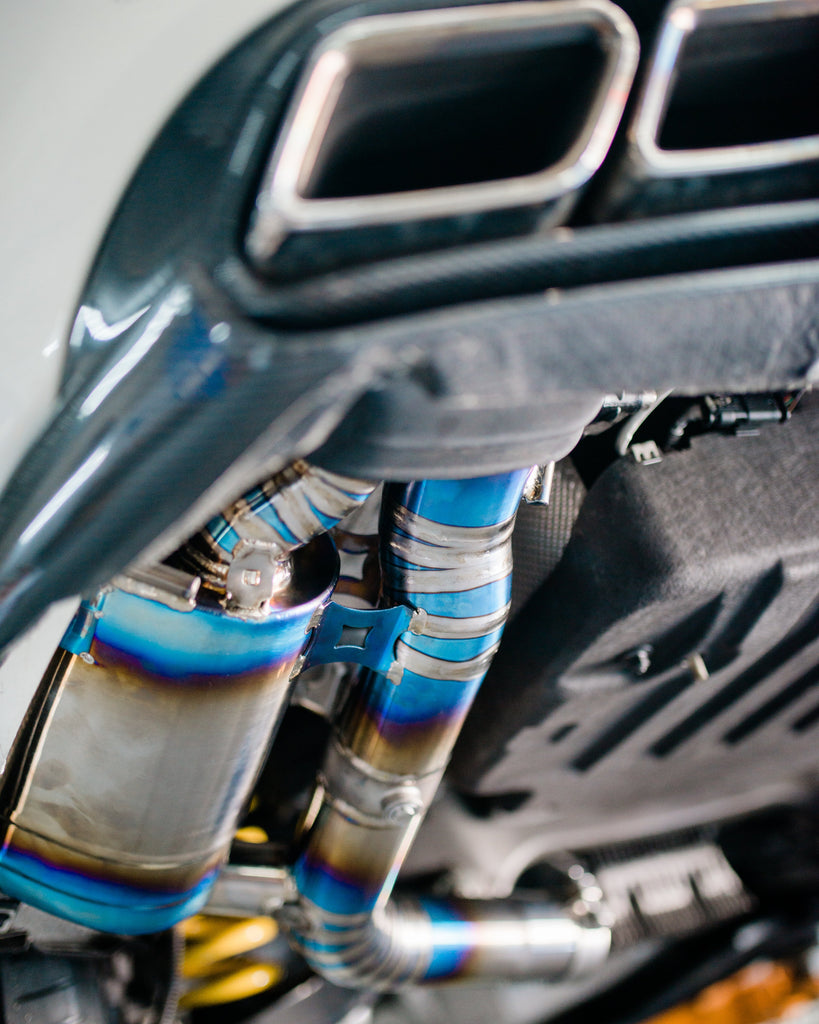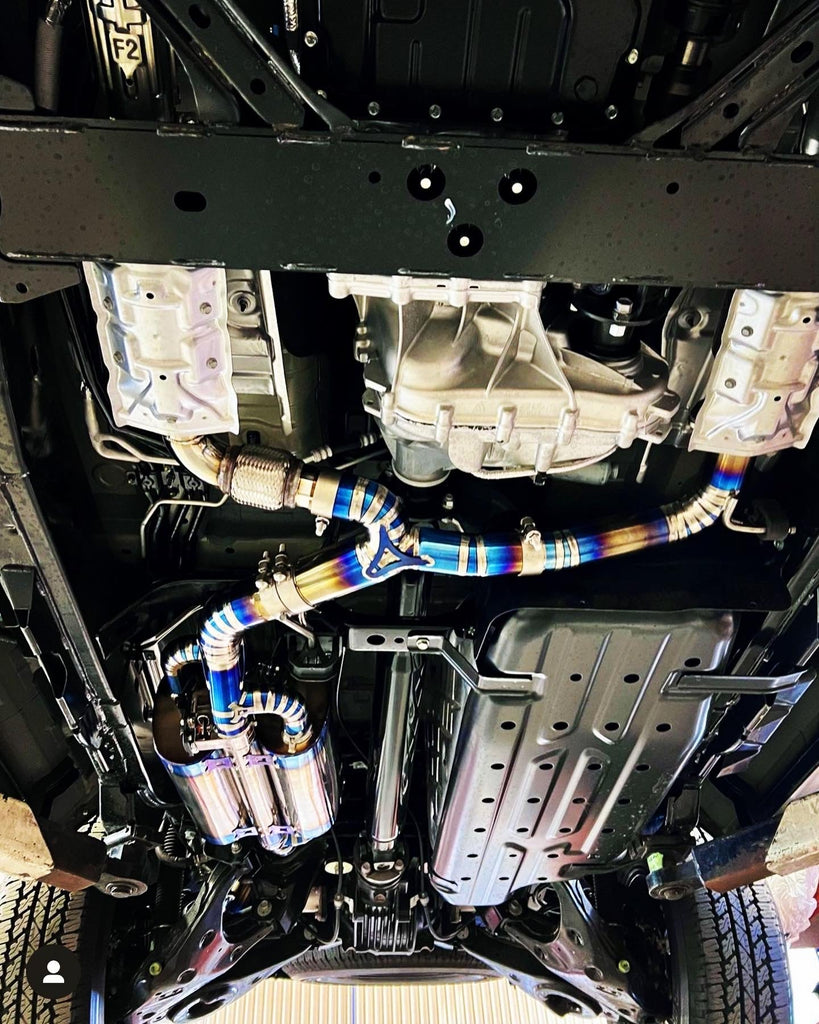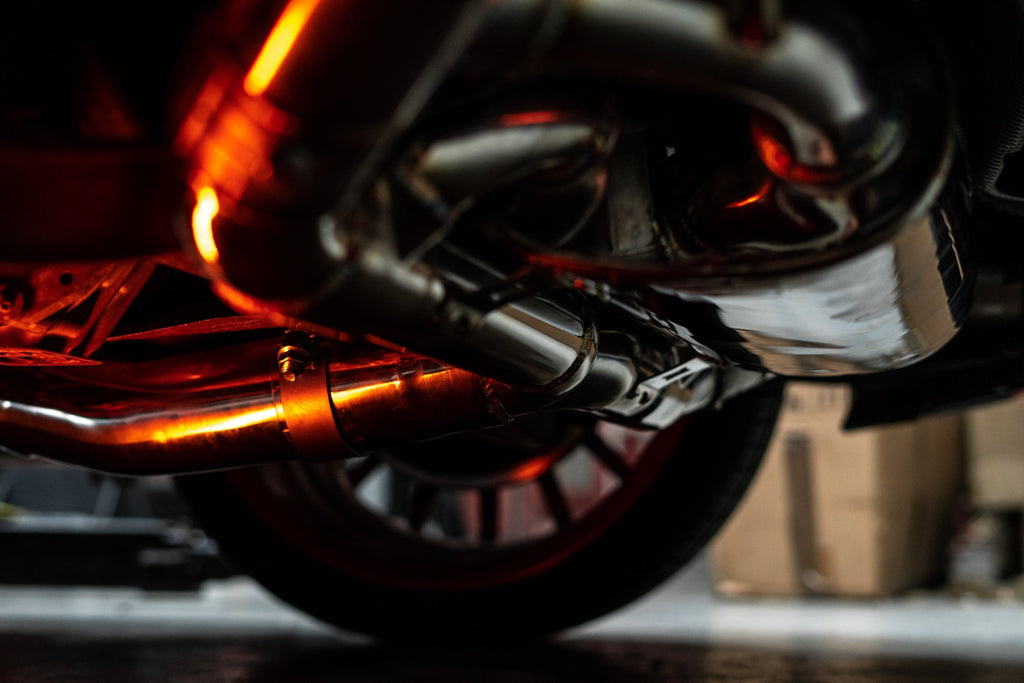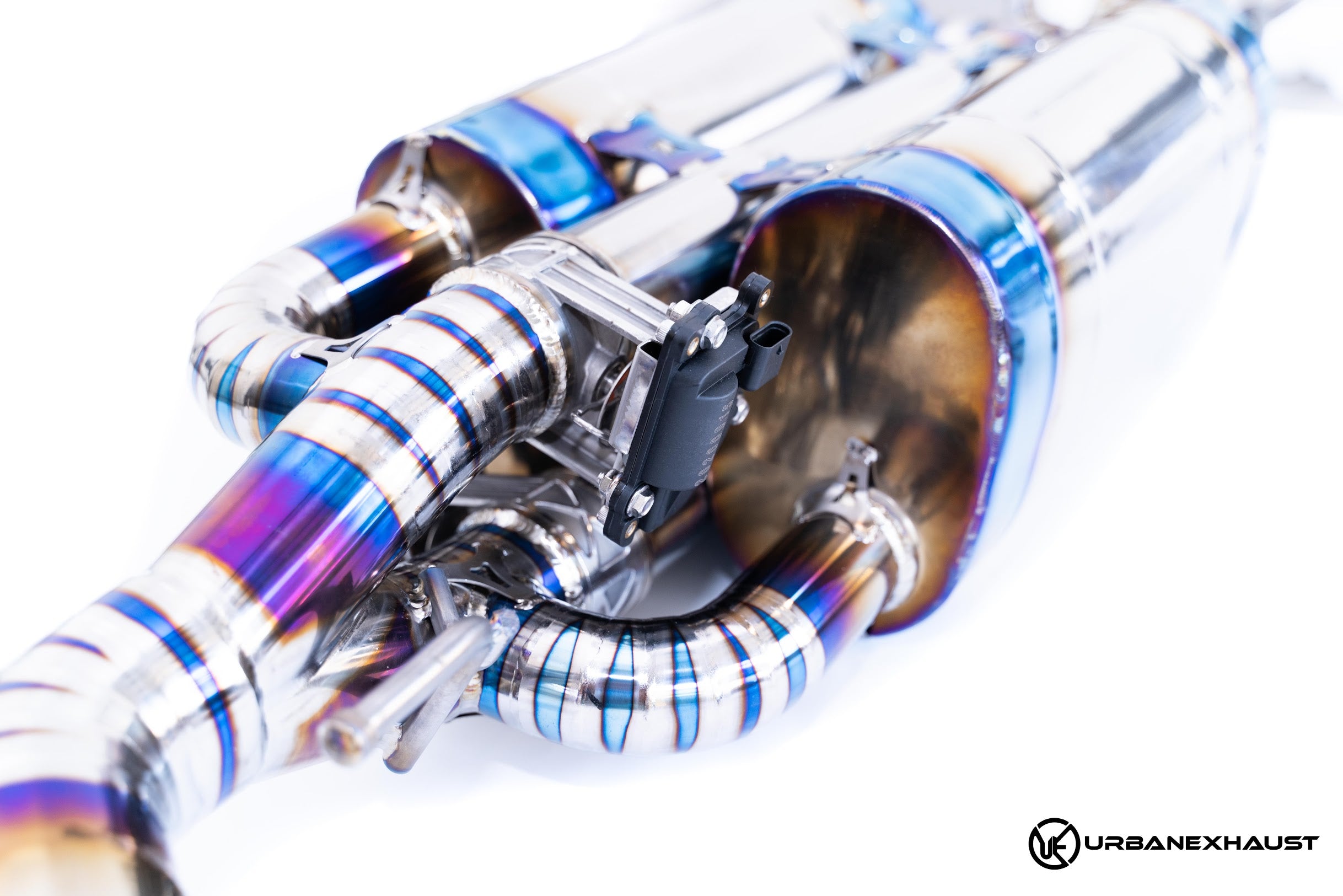
Stainless Steel vs. Titanium Exhaust Systems: Which is Right for You?

When it comes to choosing an exhaust system for your vehicle, two materials often come up: stainless steel and titanium. Each offers distinct advantages, and knowing the differences between them can help you make an informed decision. At UrbanExhaust, we’re passionate about helping you choose the best exhaust for your car’s needs. Let’s dive into the key differences between stainless steel and titanium exhaust systems to help you find the perfect fit.
1. Weight: Lighter Is Better for Performance Weight is a critical factor for performance cars, and here’s where titanium shines. Titanium exhaust systems are up to 45% lighter than their stainless steel counterparts. This reduction in weight can significantly improve your car’s handling, acceleration, and fuel efficiency.
For enthusiasts who demand the best performance on the track, a titanium exhaust system could be the difference between a podium finish and a missed opportunity. On the other hand, stainless steel is heavier, which might slightly affect your vehicle’s performance, but for most daily drivers, the difference in weight isn’t noticeable unless you’re looking to shave off every ounce.
2. Durability: Built to Last When it comes to durability, both materials are tough, but they handle the elements in different ways. • Titanium is highly resistant to corrosion, even in harsh conditions like saltwater or extreme heat. It won’t rust, and it won’t be affected by elements such as rain or moisture, making it ideal for cars that are exposed to high temperatures or wet environments.
• Stainless steel is also corrosion-resistant, but it’s not quite as tough as titanium in this regard. While it holds up well to the elements, it can eventually show signs of wear, especially if exposed to salt and moisture over time. If you’re located in a coastal area or want an exhaust system that can withstand extreme conditions, titanium might be your best bet for long-term durability.
3. Strength: Toughness Under Pressure While both materials are strong, titanium is known for its ability to withstand high temperatures without weakening. It’s a strong contender for racing and performance applications, where exhaust systems are subjected to intense heat.
However, titanium can be more brittle and prone to cracking under heavy impact, making it less ideal for off-road applications or situations where the exhaust system might face physical damage. In comparison, stainless steel is tougher and less likely to crack under stress. It’s more resilient when it comes to impacts and physical damage, making it perfect for regular road use or off-road driving.
4. Heat Resistance: Keep Your Exhaust Cool When it comes to managing heat, titanium excels. Titanium has exceptional heat resistance, meaning it can handle the extreme temperatures that come with high-performance driving without breaking down or becoming deformed.
Titanium’s ability to dissipate heat quickly also helps keep the exhaust system cooler, which can prevent excessive heat buildup in the engine bay.
Stainless steel can handle heat too, but it’s more prone to discoloration and warping when exposed to high temperatures over extended periods. If you’re running a vehicle that regularly operates under intense conditions, titanium might be the best choice to ensure your exhaust system stays cool and performs well.

5. Sound: A Unique Exhaust Note One of the most important aspects of an exhaust system is the sound it produces. For those who crave a high-pitched, almost metallic exhaust note, titanium delivers. Its unique resonance gives your car a distinctive, aggressive sound that’s popular in performance and racing circles. In contrast, stainless steel provides a deeper, richer tone. It’s smoother and more subdued, which can be appealing for daily drivers who want a balance between sound and performance.
6. Cost: The Price of Performance Here’s where the real difference is felt: titanium exhaust systems are significantly more expensive than stainless steel. The manufacturing process for titanium is complex and costly, making the material much more expensive. On the other hand, stainless steel is more affordable, making it the go-to choice for those who want a high-quality exhaust system without breaking the bank. It’s durable, effective, and offers great value for money.
7. Appearance: Stand Out with Style Titanium exhaust systems aren’t just known for their performance; they also have a distinctive look. When exposed to heat, titanium develops a colorful, iridescent finish that ranges from blue to purple to gold.
This unique appearance is a favorite among performance enthusiasts who want their car to stand out. Stainless steel, while sleek and shiny, lacks this color-changing effect. However, it still looks polished and sophisticated, making it a great option for those who prefer a more traditional and understated aesthetic. Which Exhaust System is Right for You?
The decision between a stainless steel and titanium exhaust system ultimately depends on your specific needs and budget. • If you’re a performance enthusiast looking to shed weight, improve heat dissipation, and stand out with a unique sound, titanium is your go-to material.
• If you’re looking for durability, strength, and a more affordable solution without compromising too much on performance, stainless steel remains an excellent choice for most street cars and daily drivers.
At UrbanExhaust, we offer a wide range of high-performance exhaust systems, from stainless steel to titanium, to ensure that your car sounds as good as it performs. Whatever your choice, we’re here to help you make the right decision for your vehicle. Ready to upgrade your ride? Contact UrbanExhaust today and get the exhaust system your car deserves!




